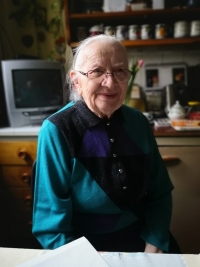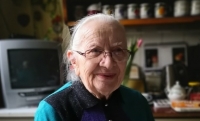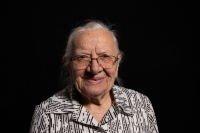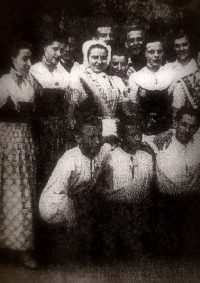In Hitler‘s time, the Germans wanted us dead
Stáhnout obrázek
Hilda Bartáková, née Bartsch, was born on 3 July 1928 in the village of Diehmen in the south-eastern part of Germany, the so-called Upper Lusatia. She came from a mixed marriage, her father Johann was a Lusatian Serb, her mother Amálie was a German. The family with six children lived on a small farm. Hilda‘s mother died in 1934 and her father remarried three years later. During the war he was fully deployed. He had to enlist three days before the end of the war and was taken prisoner. The Second World War greatly affected the lives of all family members. Hilda‘s sister Elsa spent three years in Soviet captivity. Her sister, Marta, lived through the end of the war in Berlin, where she took care of children hidden in an air-raid bunker during the bombing of the city. Hilda, the youngest of the siblings, stayed with her stepmother in their village. She recalls being humiliated by her school teacher because of her partly Slavic origin, the bombing of German cities and its consequences, and the situation in war-torn Germany. At the end of April 1945, she and her step-mother had to go into hiding as the retreating German army fought the last battles with Red Army soldiers around Demjan. In 1947, she illegally left for Czechoslovakia and began working as a domestic helper, governess and later as a confectioner in the factory canteen of the Ministry of Fuel and Energy. In the early 1950s, she returned to Germany for a short time. The Lusatian-Serbian Institute for Speech and Literature was founded in Leipzig and Hilda took a job as a secretary there. In 1956 she returned back to Czechoslovakia, married Jiří Barták and settled in Prague. She raised two children with her husband and then worked as a secretary at the German Democratic Republic Embassy until her retirement. She is a widow, and at the time of filming in 2022 she was living in Prague.




